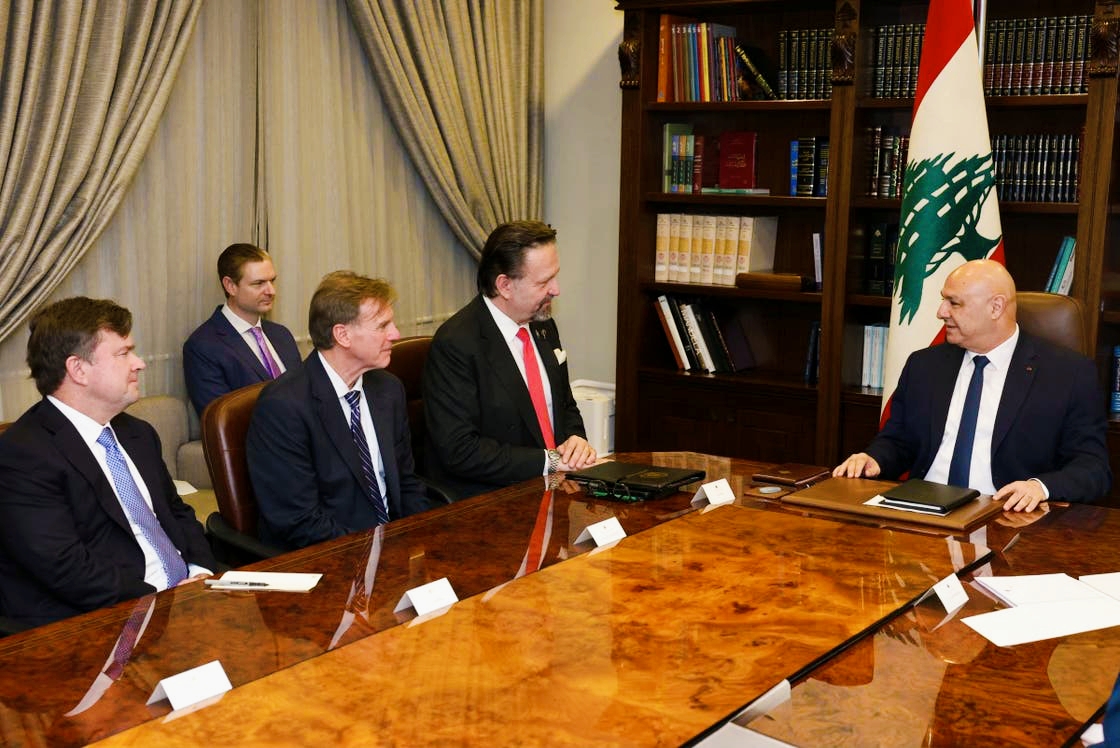US Issues 60-Day Ultimatum to Lebanon for Reforms to Avoid Sanctions

Under the title "Reforms and Countering Hezbollah Financing", a senior US Treasury delegation arrived in Beirut yesterday, Monday, delivering a clear message to Lebanese officials: time is running out for Lebanon to demonstrate its commitment to financial reforms and combatting terrorism financing.
According to insiders, the discussions focused on "violations" within the Lebanese financial system that the delegation claims are being exploited to funnel illegal funds to Hezbollah.
The delegation members emphasized the urgent need to initiate financial reforms and to halt what they referred to as a "cash economy," which the group benefits from to restore its infrastructure.
* Millions Flowing to the Group
Sources revealed that the US delegation explicitly mentioned millions of dollars that have been illegally funneled to Hezbollah in recent months, benefiting from the proliferation of cash transactions in the Lebanese market.
The delegation warned that continuing down this path could have serious repercussions for Lebanon's financial and economic stability, noting that delays in implementing necessary reforms could jeopardize the remaining trust of the international community in the country.
* 60-Day Deadline for Mandatory Reforms
According to the same sources, the US delegation has given Lebanese authorities a maximum of 60 days to meet a series of fundamental requirements, starting with a "plan to control weapons in state hands" and ending with regulating the cash economy and initiating essential financial reforms to end the financial chaos.
The delegation pointed out that the recently approved law by Parliament for restructuring banks is "insufficient and not up to the required level," stressing that Lebanese citizens' trust in banks has yet to be restored, meaning the market remains reliant on cash transactions instead of banking services.
* Clear Warning: Lebanon May Be Left Alone
The US delegation was firm in its stance, indicating to interlocutors that Washington and the international community may not continue to support Lebanon if genuine and effective steps are not taken within the set timeframe.
One delegation member reportedly stated that "what the Lebanese authorities have done in the past ten months has remained within the realm of words and promises, without actual implementation," warning that Lebanon would be left to deal with its recurring crises alone.
* The Issue of "Al-Qard Al-Hasan" Comes to the Fore
The US delegation also addressed the organization "Al-Qard Al-Hasan," known in financial circles as the "Hezbollah Central Bank," which offers financial services and loans against gold collateral outside the official banking system.
US officials confirmed that the organization has significantly benefited from the cash economy and questioned why Lebanese authorities have not yet taken necessary legal steps for its closure, viewing its continued existence as a direct violation of international laws against money laundering and terrorism financing.
* Previous US Visit and Specific Investigations
Reports indicate that a US Treasury delegation visited Beirut over two months ago, engaging with Lebanese financial and security officials.
During this visit, the delegation inquired about the structure of the Al-Qard Al-Hasan organization and the "Knowledge and Information" license under which it was established, aiming to determine the legality of its activities and funding sources.
* Lebanese President Responds: Commitment to Combat Money Laundering
In response, Lebanese President Joseph Aoun informed the US delegation that Lebanon is strictly implementing laws and procedures to combat money laundering and terrorism financing, emphasizing that Lebanese authorities impose strict penalties for financial crimes of all kinds.
Aoun pointed out that these efforts are being carried out under laws passed by Parliament, particularly the amendment of the banking secrecy law and the restructuring of banks, as well as circulars issued by the Lebanese Central Bank on this matter.
* High-Level US Delegation
The US delegation consisted of prominent security and financial figures, including:
• Dr. Sebastian Gorka, advisor to the US President on counterterrorism.
• John Hurley, Deputy Secretary of the Treasury for Terrorism and Financial Intelligence.
• Bill Barrett, head of Terrorism and Financial Intelligence.
• Spencer Horowitz, Deputy Assistant Secretary of the Treasury for Terrorism and Financial Intelligence.
• Michael Romaiss, advisor to the Deputy Secretary.
• Daniel Jackson, Director for Middle East Affairs at the Office of Terrorism Financing and Financial Crimes (TFFC).
• Nancy Dahdouh, Director for Counterterrorism and Threats at the National Security Council (Office of the Director of National Intelligence).
• Max van Amerongen, Director for Threat Financing at the National Security Council.
• Rudy Attallah, Special Advisor to the President and Deputy Director for Counterterrorism at the National Security Council.
* Clear Message
With this direct tone, the US delegation delivered a clear and unequivocal warning to Beirut:
Immediate actions towards genuine reforms and control of Hezbollah's funding sources within sixty days,
or Lebanon will be left to face its economic and political fate amid a crisis that shows no signs of resolution in the near future.
